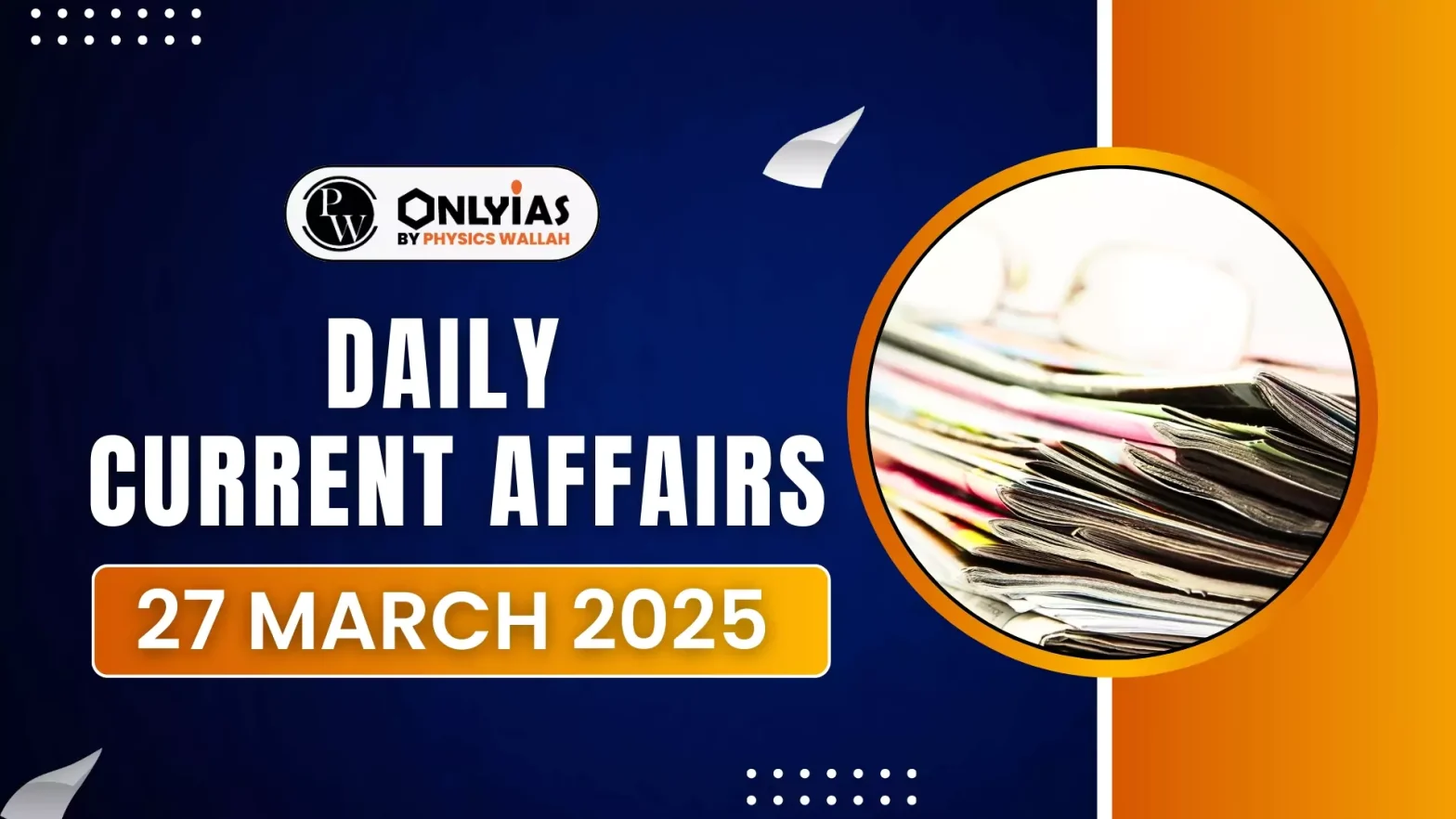The Parliament’s Public Accounts Committee (PAC) has urged the Finance Ministry to introduce GST 2.0, a streamlined version of the current Goods & Services Tax (GST) system.
Key Recommendations Of the PAC
- Comprehensive Review of the GST Framework: The Finance Ministry should eliminate unnecessary procedures that complicate compliance.
- The return filing process should be streamlined by consolidating forms and reducing filing frequency.
- A tiered compliance system should be introduced where smaller businesses face fewer requirements than larger entities.
Goods and Services Tax (GST)
- About: The Goods and Services Tax (GST) is a comprehensive, multi-stage, destination-based indirect tax that has replaced multiple indirect taxes in India.
- It aims to unify the tax structure across the country and simplify compliance for businesses.
- The GST Act was passed on 29th March 2017 and came into effect on 1st July 2017.
- Structure of GST
- Intrastate Transactions (within a state):
- Central GST (CGST): Collected by the Central Government.
- State GST (SGST): Collected by the respective State Government.
- Interstate Transactions (between states):
- Integrated GST (IGST): Collected by the Central Government and later distributed between states.
- Input Tax Credit (ITC) Mechanism
- Businesses can claim credit for input taxes paid at each stage of production or supply.
- GST is applied only on value addition at each stage, ensuring no cascading effect (tax on tax).
- The final consumer bears only the GST charged by the last seller in the supply chain.
- GST Council: It is a constitutional body established under Article 279A of the Indian Constitution that decides major issues relating to GST in India
|
- User-Friendly GST Portal: Improve the user experience of the GST portal and ensure taxpayers receive clear guidance and support at every step.
- Criminal Penalties for Unintentional Errors: Revamp GST laws to prevent undue criminal penalties for honest taxpayers.There is a need to ensure that penalties differentiate between intentional fraud and unintentional errors.
- Aadhaar Authentication Challenges: The biometric-based Aadhaar authentication process needs refinement to avoid compliance hurdles.
- Addressing these issues is crucial to achieving the “One Nation, One Tax” vision.
- AI & Data Analytics for Revenue Projections: Use data analytics and AI for accurate tax revenue forecasting.
- Address fluctuations in indirect tax revenue caused by macroeconomic factors, imports, and global economic conditions.
- Transparent & Efficient Refund System
- Implement time-bound refund processing with clear timelines.
- Provide regular updates to taxpayers on the status of their refunds.
- Set up a dedicated grievance redressal mechanism for refund-related issues.
- Simplified Compliance for MSMEs & Exporters
- Introduce a simplified GST framework for MSMEs to automate return filing and refund processing.
- Reduce return filing frequency for small businesses.
- Simplify export documentation and provide clear compliance guidelines.
- Data-Driven Tax Compliance Monitoring
- Use real-time tracking systems for pending tax cases.
- Implement stricter penalties for repeat non-compliance identified via data analytics.
- Introduce a fully faceless GST collection system to eliminate manual interactions between taxpayers and authorities.
- Faster Compensation for States
- Compensation should be provisionally released every two months.
- The final compensation should be audited by the Comptroller and Auditor General (CAG) annually.
- Digital Monitoring of GST Documents: The Finance Ministry should issue a comprehensive digital format for GST-related documents within six months.
Public Accounts Committee (PAC)
- Historical Background: It was first mentioned in the Government of India Act, 1919 (Montford Reforms).
- About: The Public Accounts Committee (PAC) is the oldest parliamentary committee in India, established in 1921.
- It is one of the three Financial Parliamentary Committees, along with the Estimates Committee and the Committee on Public Undertakings.
- The committee is constituted every year under Rule 308 of the Rules of Procedure and Conduct of Business in Lok Sabha.
- Role:
- Audits revenue and expenditure of the Government of India.
- Ensures public funds are spent efficiently, legally, and for the intended purpose.
- The Committee is not an executive body and can only make advisory recommendations.
- Composition
- Total Members: 22 (15 from Lok Sabha, 7 from Rajya Sabha).
- Chairperson: A Lok Sabha MP, traditionally from the Opposition, appointed by the Speaker of Lok Sabha.
- Term: One year.
- Ministers are not allowed to be members of the PAC to maintain impartiality.
- Significance
- Strengthens parliamentary oversight on government finances.
- Helps in curbing corruption and financial mismanagement.
Enhances fiscal discipline and accountability in governance.
|
![]() 27 Mar 2025
27 Mar 2025
